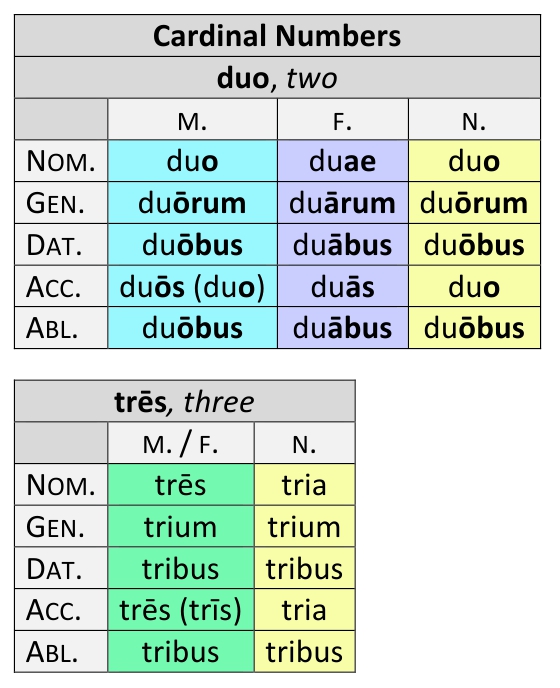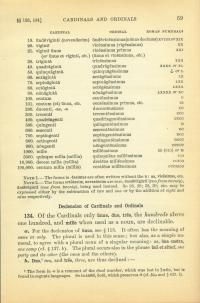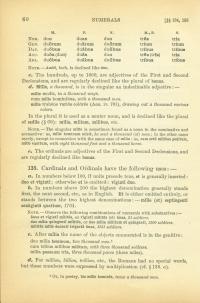134. Of the Cardinals only ūnus, duo, trēs, the hundreds above one hundred, and mīlle (when used as a noun) are declinable.
a. For the declension of ūnus, see § 113. It often has the meaning of same or only. The plural is used in this sense; but also, as a simple numeral, to agree with a plural noun of a singular meaning.
ūna castra one camp (cf. § 137.b)
The plural occurs also in the phrase ūnī et alterī one party and the other (the ones and the others).
b. Duo1 (two) and trēs (three) are thus declined.
Note— Ambō (both) is declined like duo.
c. The hundreds, up to 1000, are adjectives of the 1st and 2nd Declensions, and are regularly declined like the plural of bonus.
d. Mīlle (a thousand) is an indeclinable adjective in the singular.
mīlle modīs in a thousand ways
cum mīlle hominibus with a thousand men
mīlle trahēns variōs colōrēs (Aen. 4.701)
drawing out a thousand various colors
In the plural it is used as a neuter noun, and is declined like the plural of sedīle (§ 69): mīlia, mīlium, mīlibus, etc.
Note— The singular mīlle is sometimes found as a noun in the nominative and accusative:
Mīlle hominum mīsit. He sent a thousand (of) men.
in the other cases rarely, except in connection with the same case of mīlia.
cum octō mīlibus peditum, mīlle equitum
with eight thousand foot and a thousand horse
e. The ordinals are adjectives of the 1st and 2nd Declensions, and are regularly declined like bonus.



